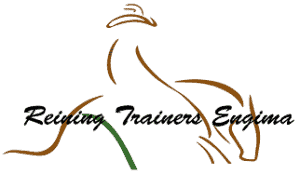Why Reining is No Longer an FEI Sport
As recently as this fall, at the World Equestrian Games, reining was a big draw and the US team brought home gold, says author Liz Goldsmith.
But that’s over now that the FEI has severed its ties with the American Quarter Horse Association (AQHA) and the National Reining Horse Association (NRHA). Reining is no longer an FEI-recognized sport. So what caused this change? According to the reports, there is a disagreement both over the minimum age that horses can compete in FEI events and a lack of agreement over allowed drugs.
In terms of age, the FEI regulations restricted competition to horses ages 7 and above. There was an exception made for one WEG where horses aged 6 were allowed to compete. This is not out of line for other FEI disciplines: The minimum age for FEI dressage is 8; for Olympic/WEG level eventing it’s 8; and for show jumping it’s 7. In the reining world, where many horses are started at age 2 (or even at 18 months), junior classes are held for horses age 3-5 and the NRHA and many breed associations offer futurities for 3-year olds which have large purses — the NRHA’s snaffle bit futurity for 3-year olds pays out in excess of $1 million, with the Futurity Open Champion winning $125,000.
The argument against competing horses this young in such a physically demanding discipline is compelling: most horses haven’t finished growing at age 3 and many young horses are irreparably injured. The spins can cause concussion-type injuries on the fetlock and knee and slides can cause injuries to the hock and fetlock joints, stifles and sacroiliac subluxation.
Which brings us to medications. The FEI has very stringent drug regulations; however, many substances prohibited by the FEI may be used up to threshold levels under NRHA rules. Some people believe that the younger age of competition and the rigorous training for futurities means that reining horses are at a higher risk of being drugged to keep them comfortable. It is reported in some media that over the period of the agreement (from 2010-2018), the NRHA has the highest positive drug test results of all FEI sports.
Training methods in reining have also come under fire, although were not specifically called out by the FEI. Reining horses are subjected to riding techniques similar to “Rollkur” or hyperflexion. The video below, which shows the warm up at an FEI World Final, is pretty disturbing. Not only because of the hyperflexion but because the horses are basically run into the arena walls at speed to train the sliding stops. Even more disturbing? The rider featured, Martin Muehlstaetter, is one of the sport’s top trainers.
[footnote] Check out this video at the end where the horse spinning was asked to complete 19 consecutive spins.
I am in no way stating that all reiners are ridden and trained this way. As in any discipline, there are trainers who cut corners with training techniques that border on abuse and trainers who treat their horses like valued partners. It’s just a shame when the public warm up at World Reining Final, holds up this type of riding as something to aspire to.
Original article posted equineink.com
What do you think about the decision by the FEI to cut ties with reining?




Who would want to see these monsters at any competition let alone an international event? They haven’t changed since 2010 – I think they are worse when you see that predator on the white horse in the other video.